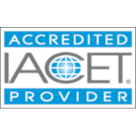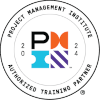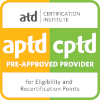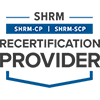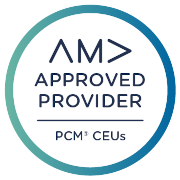Product Details
Topics Covered
- Web analytics evolution
- Web analytics management
- Search engine optimization (SEO)
- Search engine marketing (SEM)
- Metrics
- KPIs
- Segmentation
- Dashboards
- Explicit data
- Implicit data
- Dynamic content
- Landing page optimization
- Experimentation and testing
- A/B vs. multivariate testing
- Buying cycle
- Purchase funnel
- e-commerce metrics
- Surveys
- Qualitative information
- Developers
- Page tagging
Key Features
- Mobile-friendly
- Audio-enabled
- Badge and credit-awarding
- Real-world case studies
- Fully accessible
- Games & Flashcards
- Expert-supported
- Video content
Course Preview
Course Description
Learning Outcomes
- Define web analytics
- Define key terms used in web analytics
- Explain how web analytics evolved
- Discuss how different organizations use web analytics
- Identify who uses web analytics in an organization
- Explain the difference between search engine optimization (SEO) and search engine marketing (SEM)
- Describe the difference between metrics and KPIs
- Describe what segmentation is and how it can improve the usability of a website
- Describe what dashboards are and why they are useful
- Identify what should go into a dashboard
- Define the difference between implicit and explicit data
- Explain the use of dynamic content
- Describe landing page optimization best practices
- Articulate the importance of experimentation and testing in web analytics
- Explain the differences between A/B and multivariate testing
- Identify where a visitor is in the buying cycle and purchase funnel
- Define common e-commerce metrics
- Describe how surveys and qualitative information is used in web analytics
- Identify when it is appropriate to include developers and page tagging
Notes
This course has an "Ask the Expert" feature, which submits your questions directly to an expert in the field you are studying. Questions are answered as quickly as possible and usually within 24 hours.
As an Accredited Provider, MindEdge offers for its learning events that comply with the Continuing Education and Training Standard.
Learners must achieve an average test score of at least 70% to meet the minimum successful completion requirement and qualify to receive credit. Learners will have three attempts at all graded assessments.
Project Management Institute, , the Registered Education Provider logo, Project Management Professional, , Project Management Body of Knowledge, , Agile Certified Practitioner, -, Risk Management Professional, -, the Talent Triangle, and the Talent Triangle logo are marks of the Project Management Institute, Inc.
Information in this course has been taken from A Guide to the Project Management Body of Knowledge, (® Guide) - Sixth Edition, Project Management Institute Inc., 2017.
The following list outlines the you will earn for completing this course, based on the certifications you have.
CAPM®/PMP®/PgMP® |
|---|
| Ways of Working PDUs: 2.25 |
| Power Skills PDUs: 0 |
| Business Acumen PDUs: 1.25 |
| TOTAL: 3.5 |
PfMP® |
|---|
| Ways of Working PDUs: 2.25 |
| Power Skills PDUs: 0 |
| Business Acumen PDUs: 1.25 |
| TOTAL: 3.5 |
PMI-ACP® |
|---|
| Ways of Working PDUs: 0 |
| Power Skills PDUs: 0 |
| Business Acumen PDUs: 1.25 |
| TOTAL: 1.25 |
PMI-PBA® |
|---|
| Ways of Working PDUs: 2.25 |
| Power Skills PDUs: 0 |
| Business Acumen PDUs: 1.25 |
| TOTAL: 3.5 |
PMI-RMP® |
|---|
| Ways of Working PDUs: 0 |
| Power Skills PDUs: 0 |
| Business Acumen PDUs: 1.25 |
| TOTAL: 1.25 |
PMI-SP® |
|---|
| Ways of Working PDUs: 0 |
| Power Skills PDUs: 0 |
| Business Acumen PDUs: 1.25 |
| TOTAL: 1.25 |
